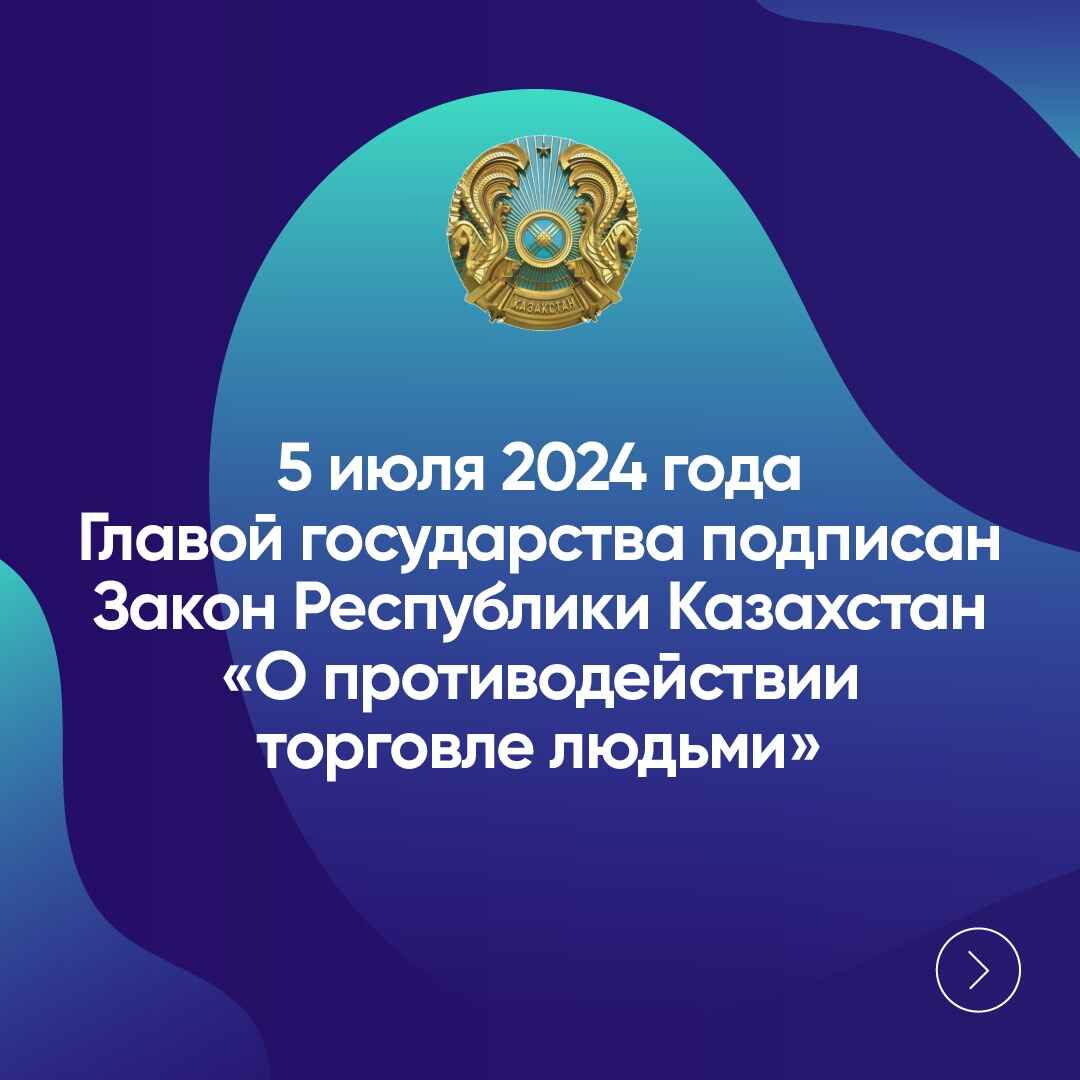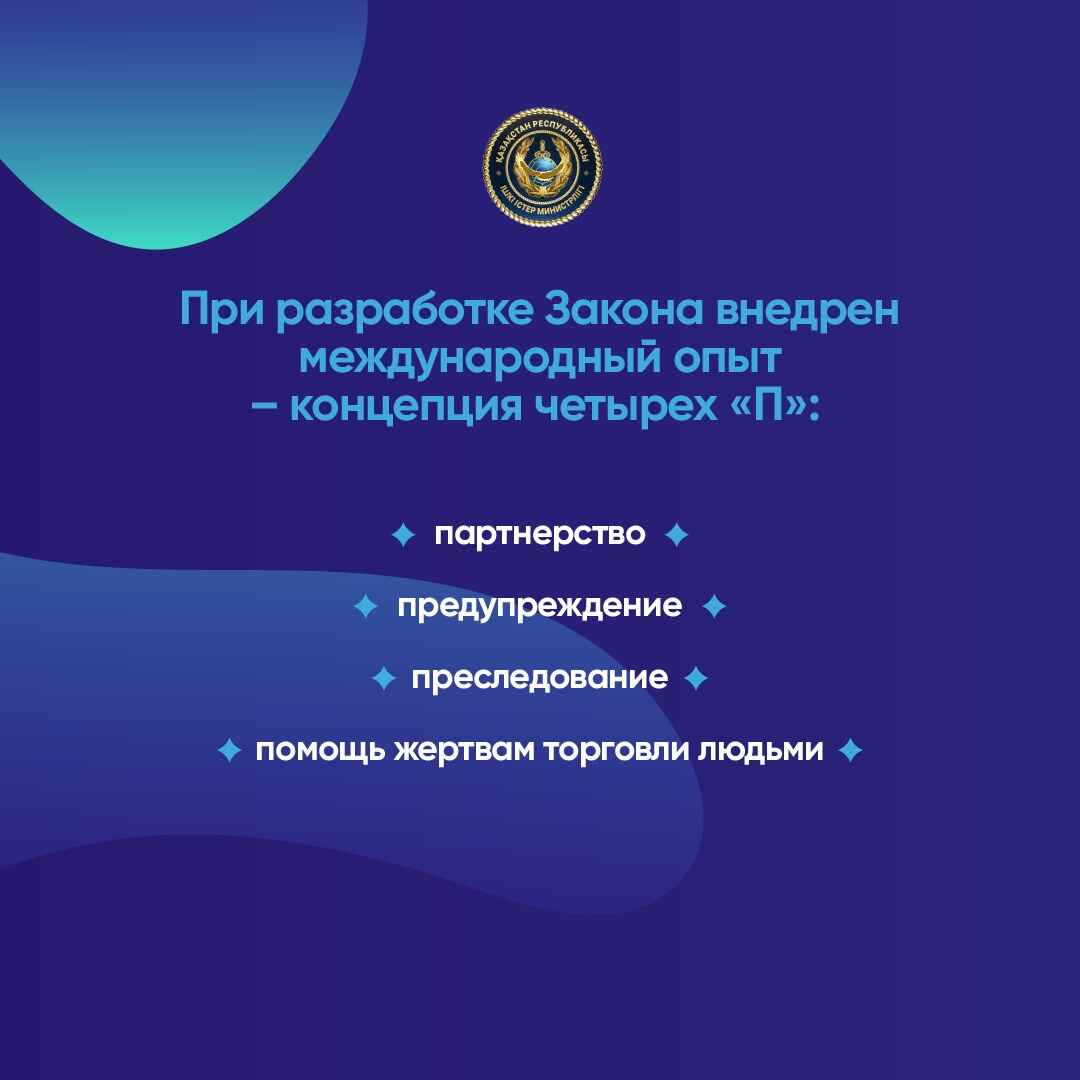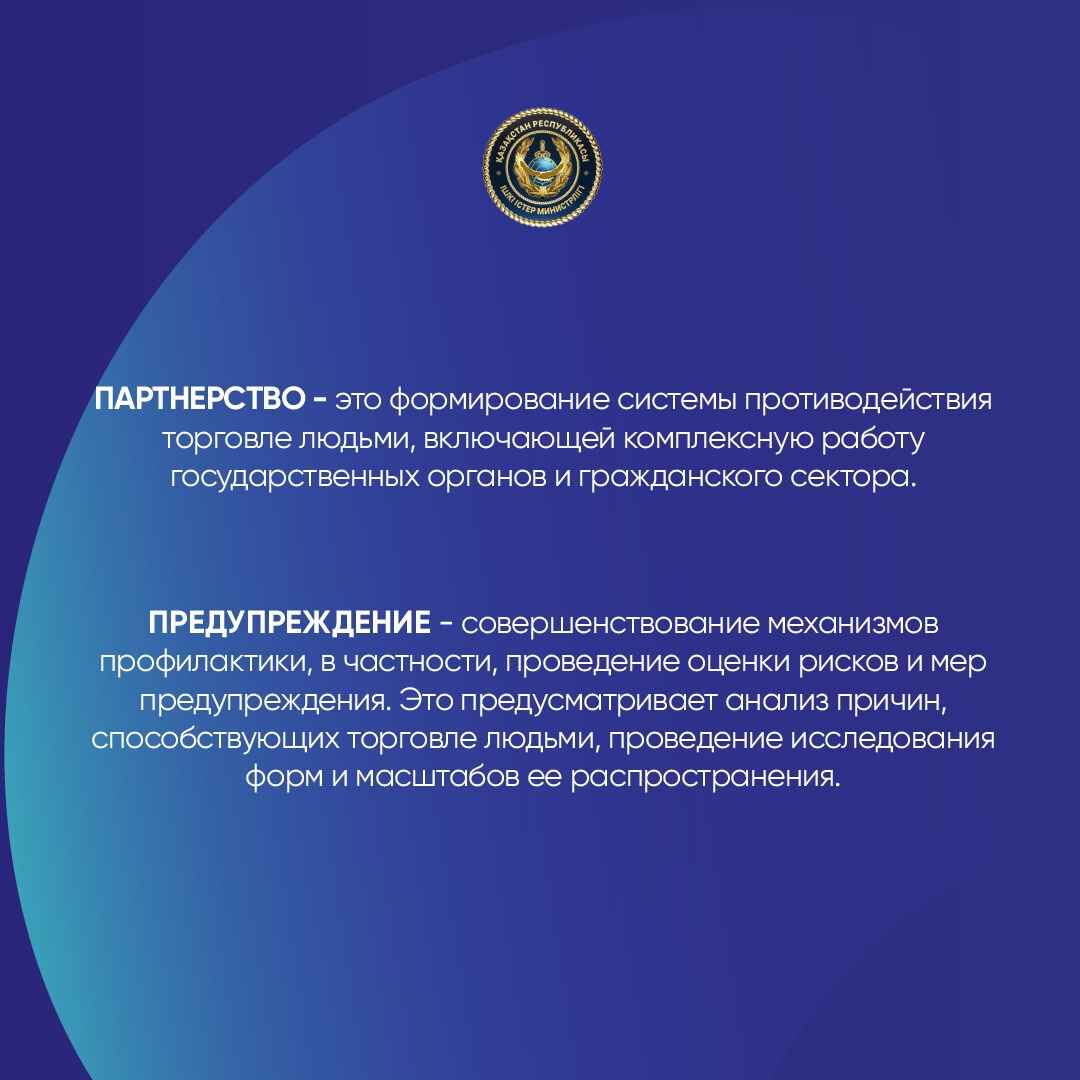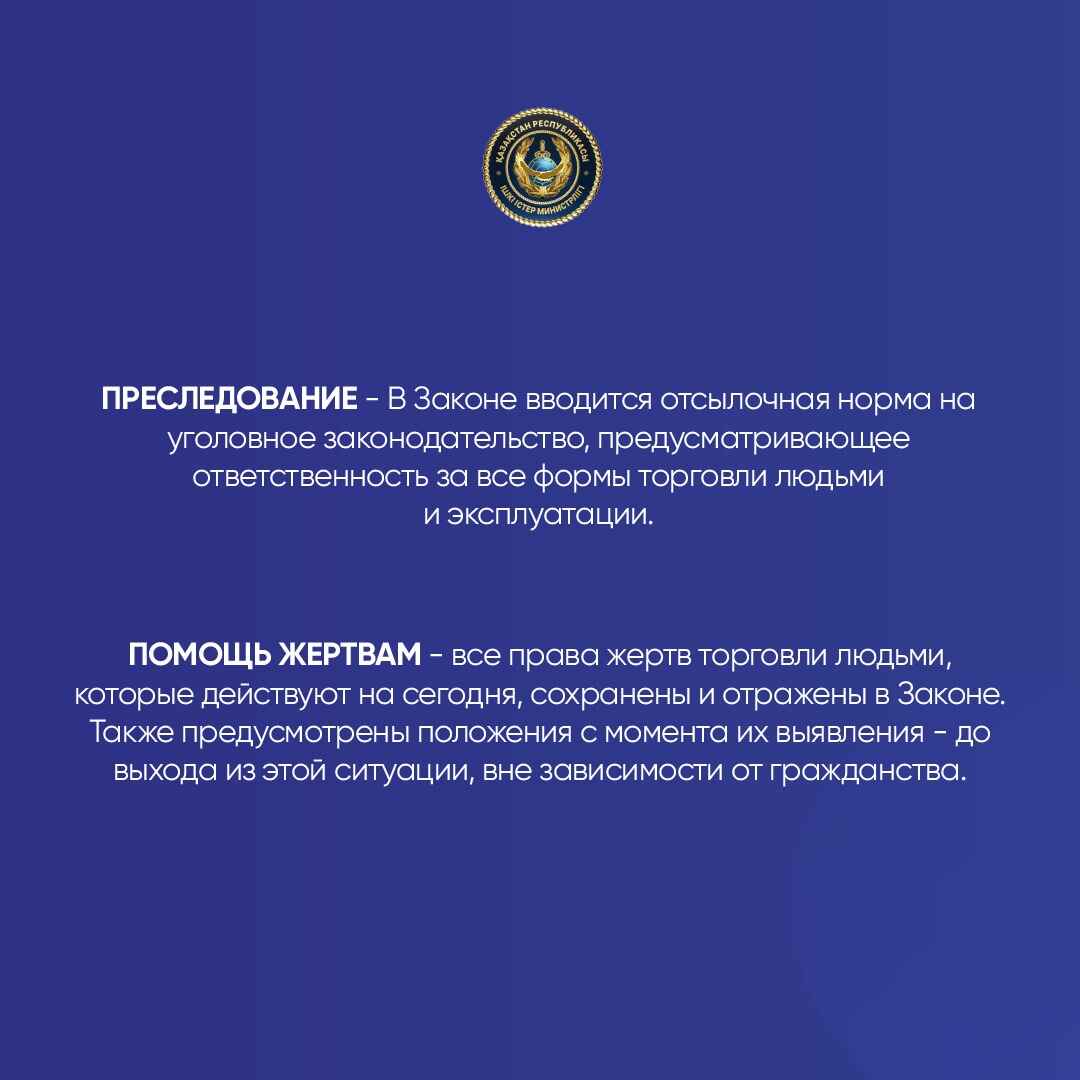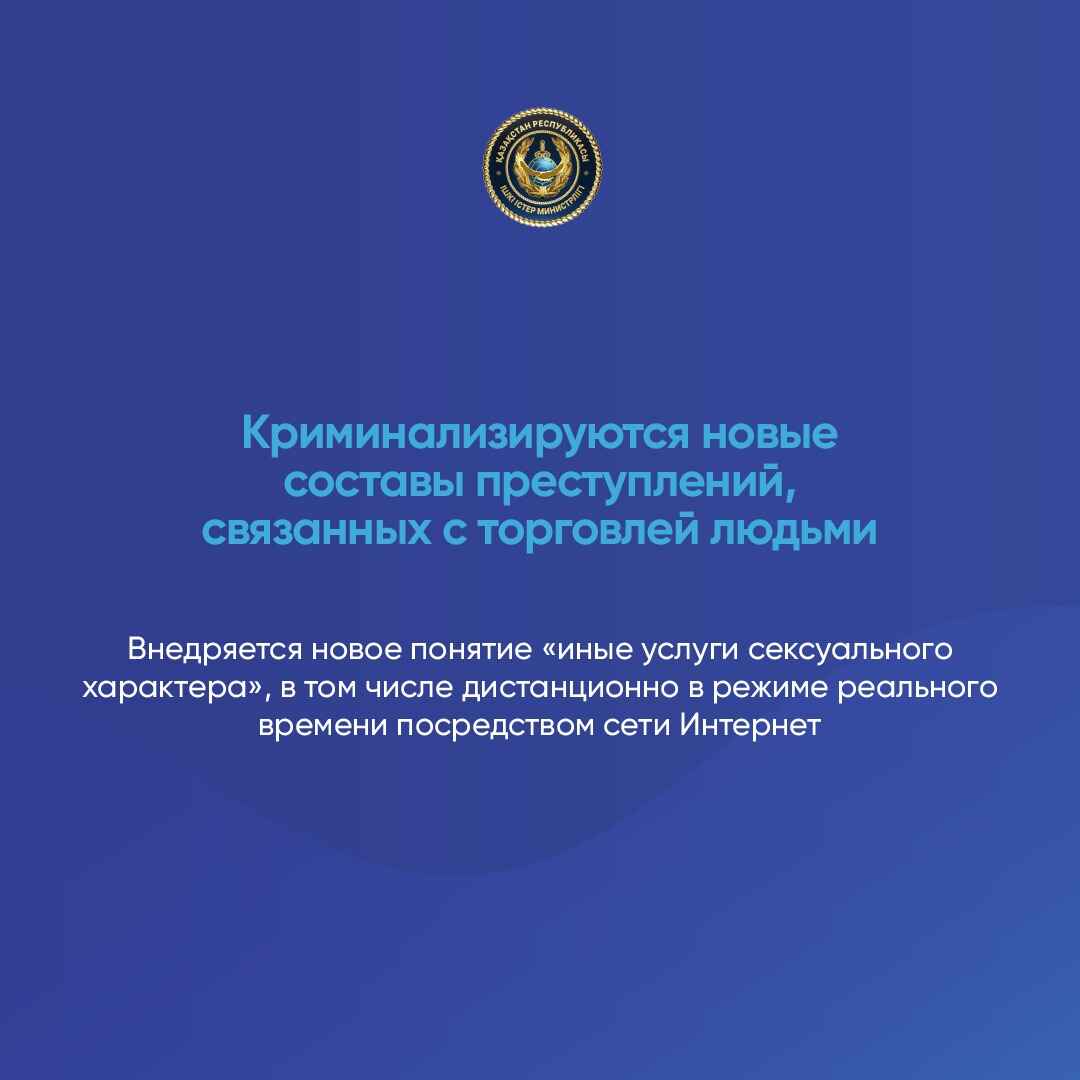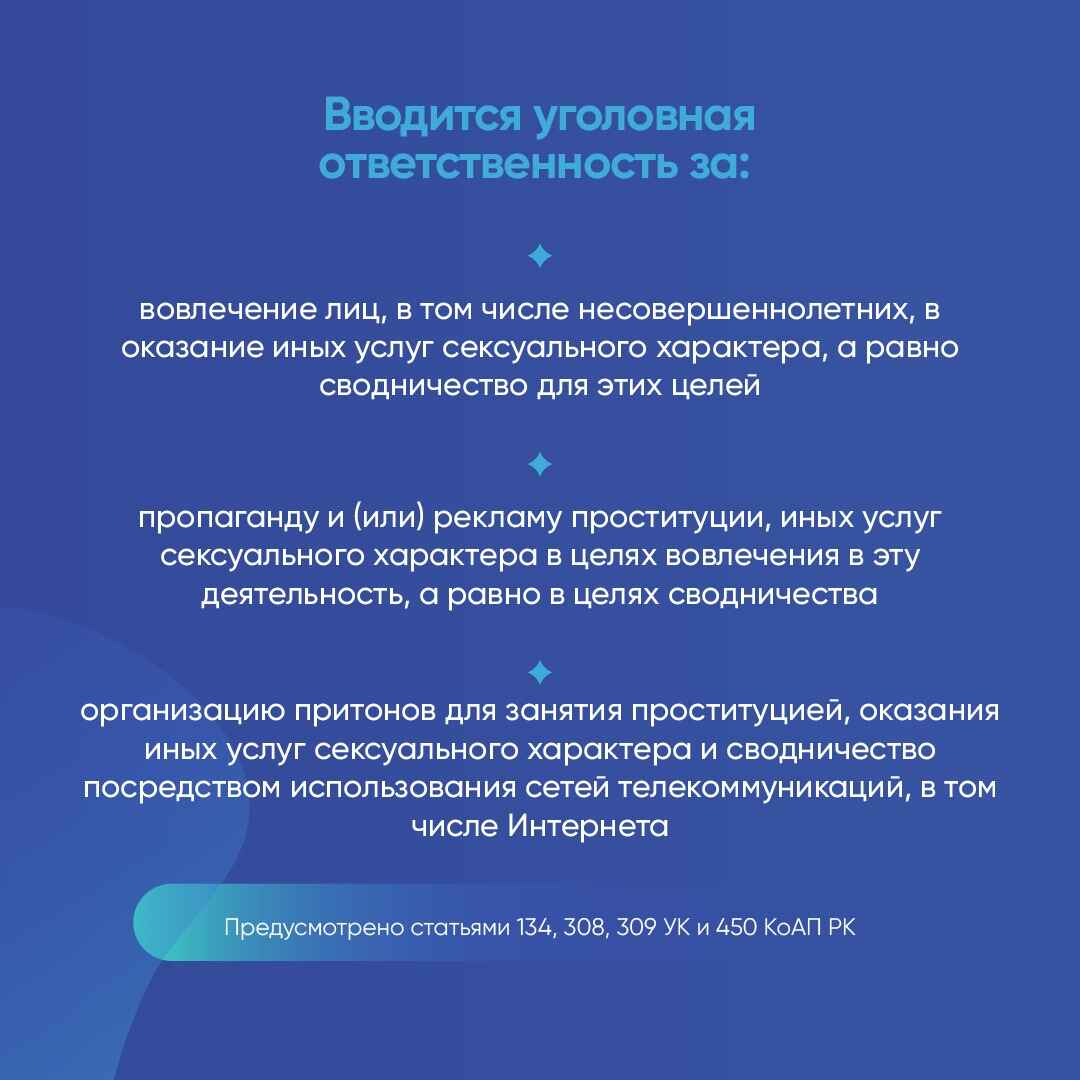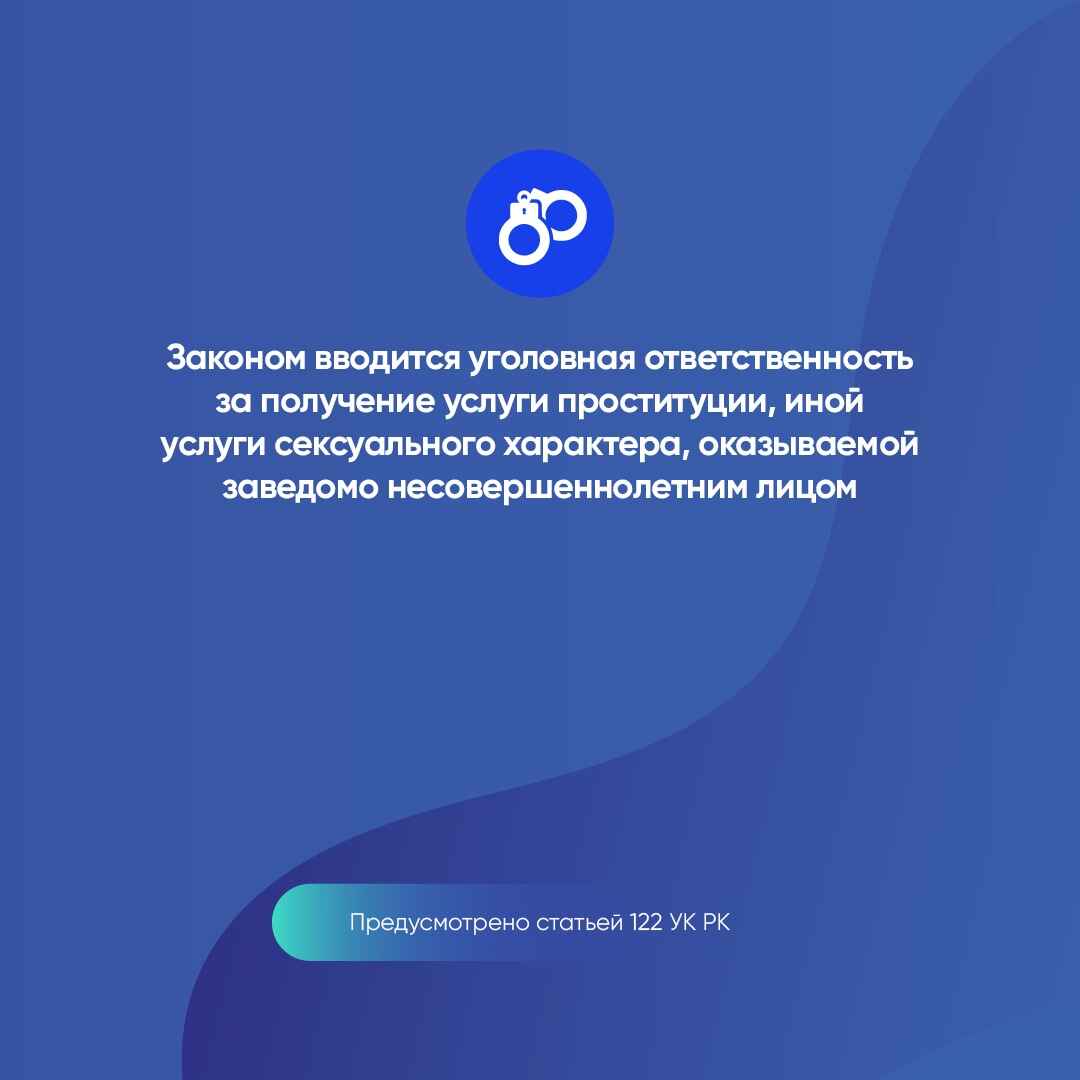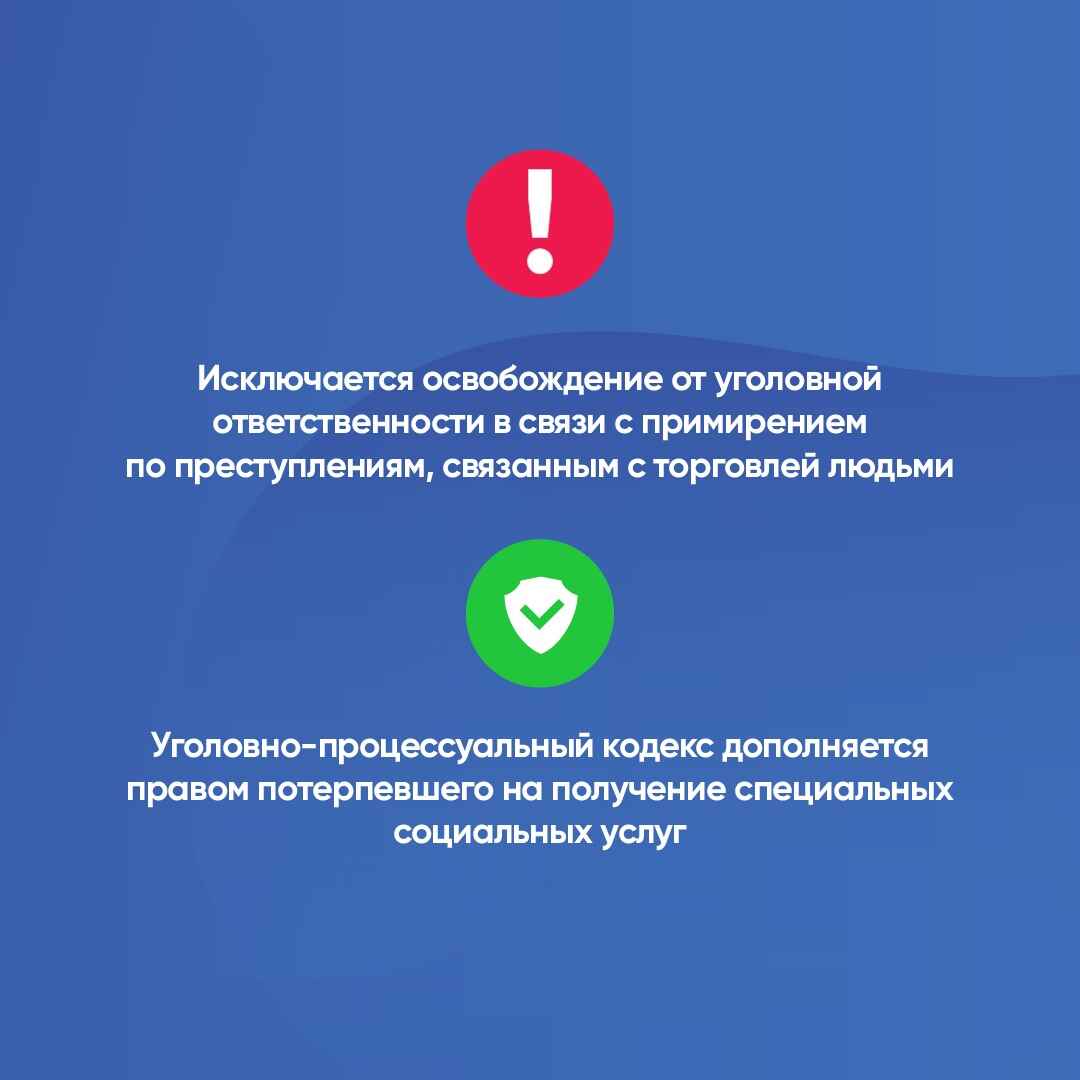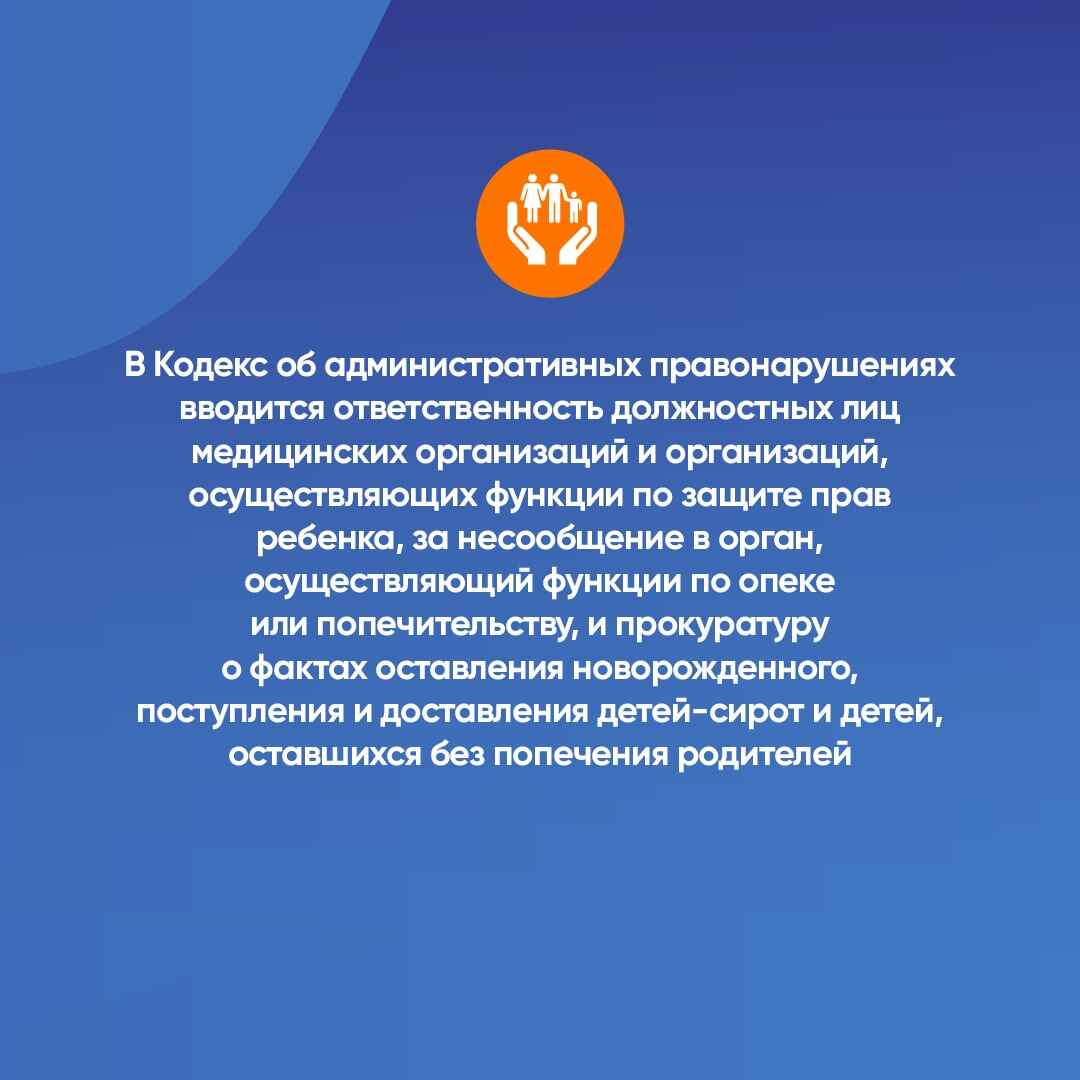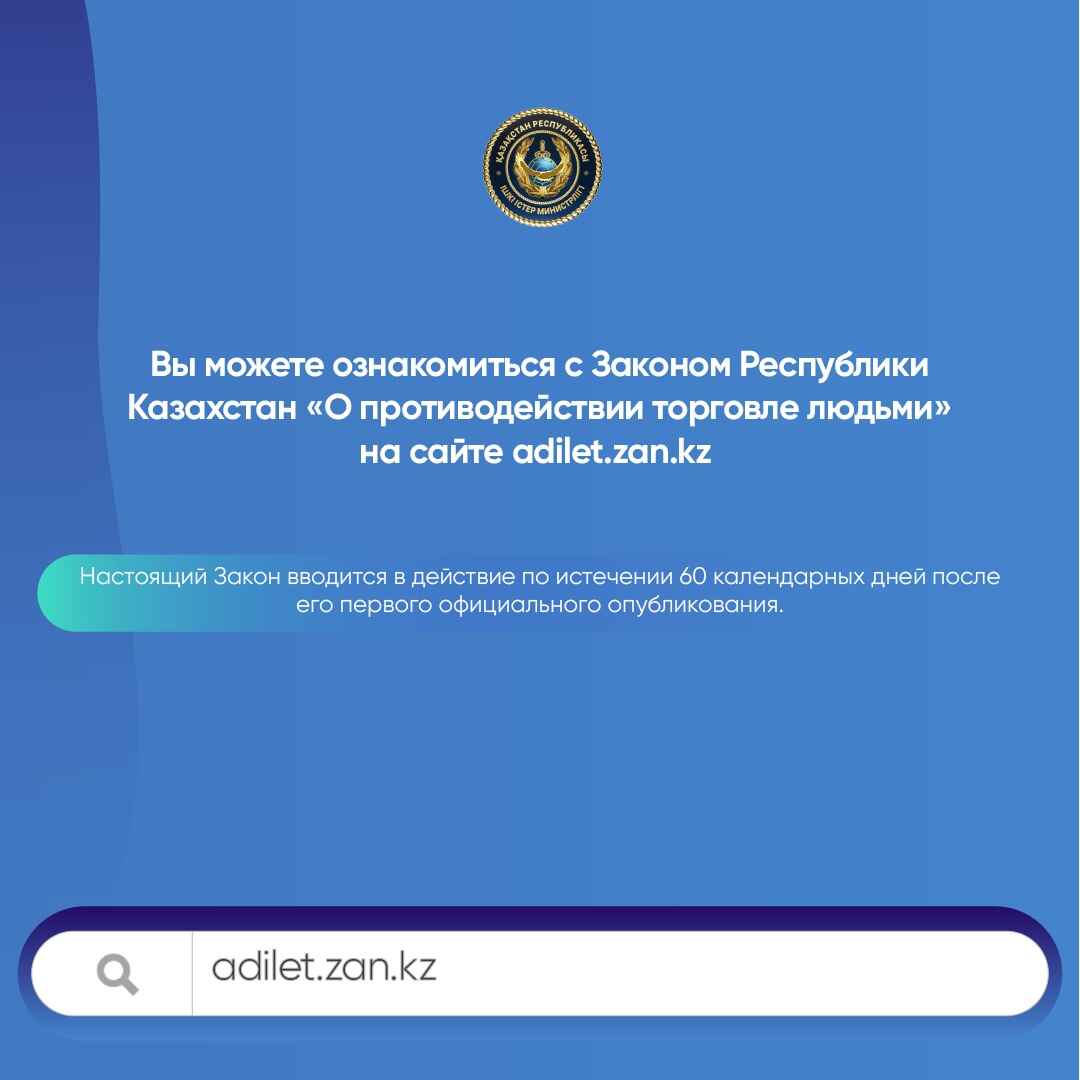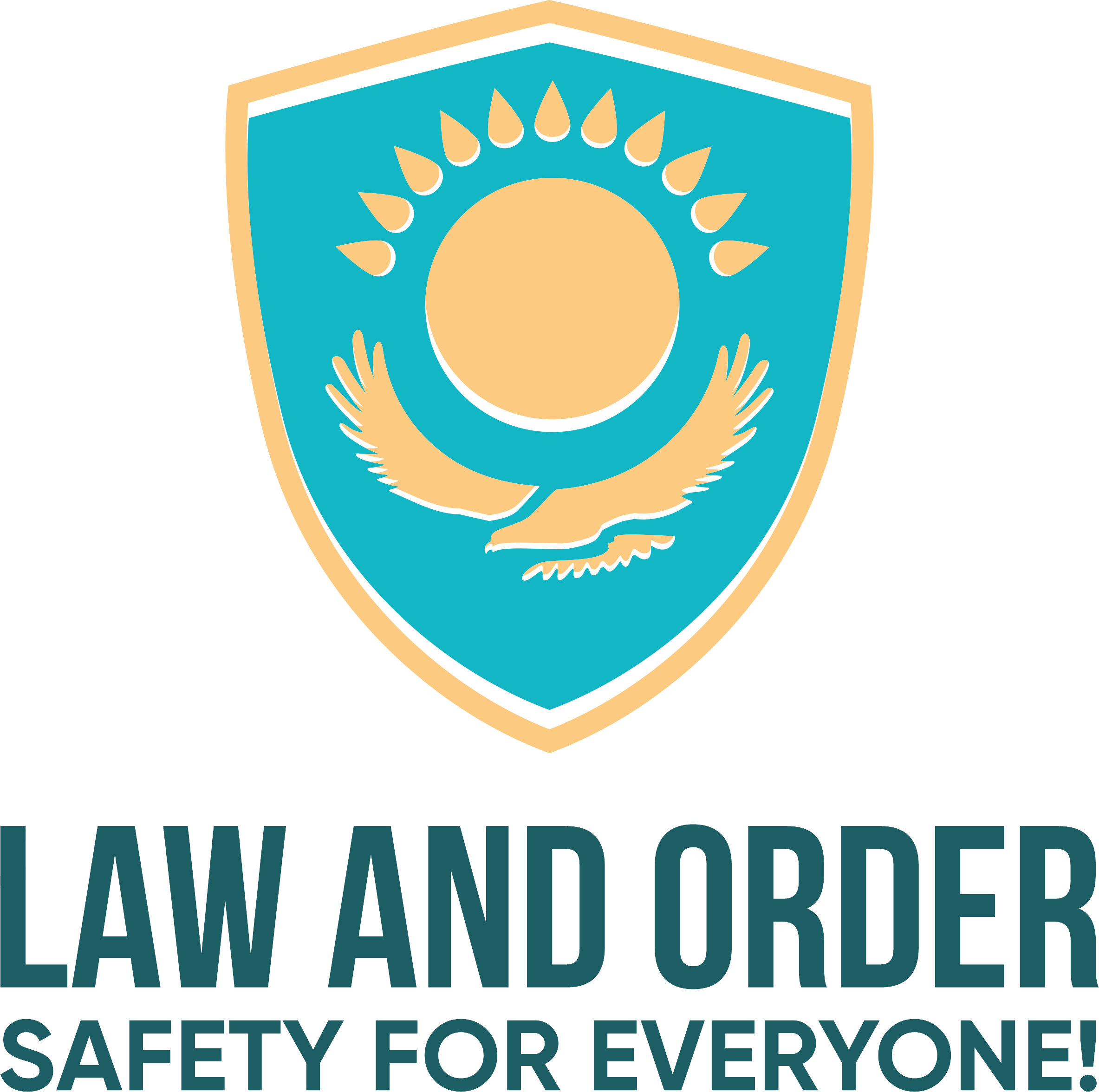The Law of the Republic of Kazakhstan "On Combating human Trafficking"
Thus, when developing the Law, the main approaches are defined.International experience has been introduced – the concept of four "P's": partnership, prevention, persecution and victim assistance.
For example, the first is the formation of a system to combat human trafficking, including the integrated work of government agencies and the civil sector, Interdepartmental and regional commissions to combat human trafficking and the foundations of international cooperation.
The second is the improvement of prevention mechanisms, in particular, risk assessment and prevention measures. This involves analyzing the causes contributing to human trafficking, conducting research on the forms and extent of its spread for subsequent minimization and adoption of effective measures.
The third is harassment. The Law introduces a reference rule to criminal legislation providing for liability for all forms of human trafficking, including forced labor, begging, sexual exploitation and organ harvesting.
The fourth is a victim-oriented approach. Protection and assistance to victims of human trafficking is a mandatory norm of many ratified international treaties.The law will allow the victim to better understand their rights and State protection measures. Guarantees to protect the rights and interests of victims will encourage them to contact the police and help bring cases to court.All the rights of victims of human trafficking that are in force today are preserved and reflected in the Law.
The law comes into force after 60 calendar days after the day of its first official publication, that is, on September 5 of the current year.
New types of crimes related to human trafficking are being criminalized.
On July 5 of this year, the Head of State signed the Law of the Republic of Kazakhstan "On Combating Human Trafficking", which will enter into force 60 calendar days after the date of its first official publication, that is, on September 5 of this year.
Within its framework, the Criminal Code introduces a new category of crimes - crimes related to human trafficking, and introduces a new concept of "other sexual services", including remotely in real time via the Internet.
Criminal liability is also introduced for:
•involvement of persons, including minors, in the provision of other sexual services, as well as pandering for these purposes;
• propaganda and (or) advertising of prostitution, other sexual services in order to involve in this activity, as well as for the purposes of pandering;
• the organization or maintenance of brothels for prostitution, the provision of other sexual services and pandering through the use of telecommunications networks, including the Internet.
These measures will make it possible to hold the organizers accountable under Articles 134, 308 and 309 of the Criminal Code, and 450 of the Administrative Code of the Republic of Kazakhstan.
In addition, the Law introduces criminal liability for receiving prostitution services, other sexual services provided by a known minor. This will make it possible to bring to justice under Article 122 of the Criminal Code of the Republic of Kazakhstan.
Exemption from criminal liability in connection with reconciliation for crimes related to human trafficking is excluded.
The Criminal Procedure Code is supplemented by the victim's right to receive special social services.
The Code of Administrative Offences introduces the responsibility of officials of medical organizations and organizations performing functions to protect the rights of the child for failure to inform the body performing the functions of guardianship or guardianship and the prosecutor's office about the facts of abandonment of a newborn, admission and delivery of orphaned children and children left without parental care.
